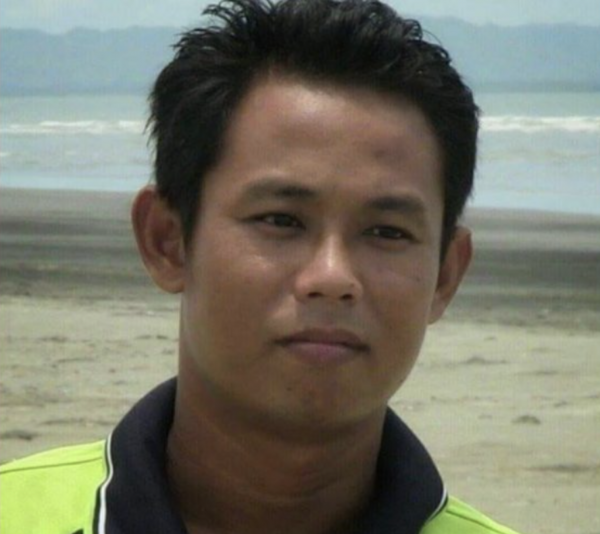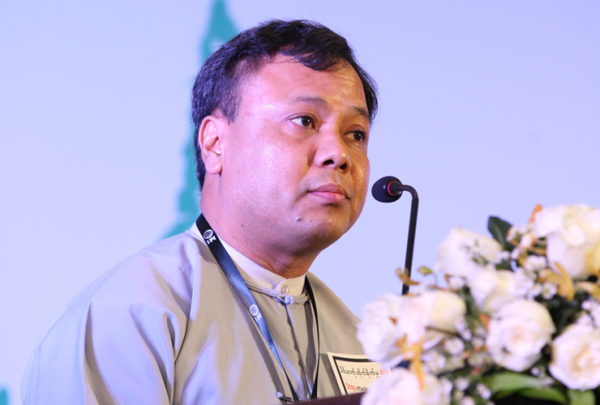At least 16 journalists were among the hundreds of political prisoners and prisoners of conscience released today by the government of Myanmar, also known as Burma.
The Democratic Voice of Burma (DVB), an exile newspaper based in Norway, confirmed on its website that five of its journalists had been released from various prisons around the country. Sithu Zeya, U Zeya, Ngwe Soe Linn, Hla Hla Win, and Win Maw had all worked as videojournalists for DVB inside Myanmar.
In addition, the International Press Institute (IPI) has received direct confirmation from DVB that a further eight of its journalists who had not been previously been named were released today and, consequently, that all 13 DVB journalists once held by the Burmese government are now free. DVB Deputy Chief Editor Khin Maung Wing explained to IPI that his organisation generally refrains from identifying its arrested journalists so as to spare the latter harsher sentences. The DVB is officially banned from operating in Myanmar.
According to news reports, Hla Hla Win and Win Maw were both arrested in connection with their coverage of the September 2007 monk-led uprising and were serving sentences of 27 and 10 years, respectively. Sithu Zeya was imprisoned for recording a series of mysterious grenade attacks in Rangoon in April 2010 and later confessed under torture that his father, U Zeya, was also a DVB journalist. Ngwe Soe Lin, who filmed an award-winning documentary on the plight of Burmese children orphaned by a devastating 2008 cyclone, had been sentenced in 2009 to 13 years in prison.
Mizzima, a Burmese exile news organisation based in India, further confirmed to IPI the release of two freelance journalists, Nay Phone Latt and Zaw Thet Htwe. Nay Phone Latt, who received the 2010 PEN/Barbara Goldsmith Freedom to Write Award, was sentenced in 2008 to 20 years in prison for his blog coverage of the 2007 unrest; the sentence was later reduced to 12 years, news outlets reported. The DVB also reported the release of a third freelance journalist, Thant Zin Aung, who video-recorded the destruction caused by Cyclone Nargis in 2008.
Soe Myint, editor-in-chief of Mizzima, which received IPI’s Free Media Pioneer Award in 2007, told IPI that today’s events are “not business as usual in Burma” and indicate that the country “is on the path to peaceful development”. Nevertheless, Soe Myint continued, “there will be more challenges ahead”. He added: “There appears to be a tacit understanding for the opposition to stay off the streets”.
Expressing similar overall optimism, Khin Maung Wing of the DVB said that the release of the journalists must be considered in the context of overall political progress in Myanmar, including the decision to allow the National League for Democracy, the party of Aung San Suu Kyi, to compete in upcoming elections and the recent ceasefire with the rebel Karen National Union. That context, Khin Maung Wing continued, gave concrete reason to believe that the situation of the media in Myanmar would continue to improve.
Khin Maung Wing said his first priority was to have the government’s ban on his organisation ended, so that the DVB could legally report from inside Myanmar. He also expressed hope that a conference on a proposed new media law, to take place at the end of this month and to include representatives of independent media, would ultimately lead to a more favourable legal climate for journalists.
IPI Press Freedom Manager Anthony Mills said, “We welcome the Burmese government’s decision to release these formerly imprisoned journalists, who were arrested simply for doing their job. There remains much work to be done. We urge the government to take the immediate step of ending restrictions on independent media.”
IPI is concerned about reports that at least some of the journalists were being released only conditionally. Sithu Zeya of the DVB told the media that if he committed a ‘crime’ in the future, he would be required to serve out the remainder of his 18-year sentence.
International media, citing Burmese state television, have reported that a total of 651 prisoners were to be released today. The freed prisoners include a former prime minister, leaders of a failed 1988 uprising, and the leader of Myanmar’s largest ethnic minority. The government has announced that elections will take place in April, when Aung San Suu Kyi is expected to run for a seat in Parliament.


